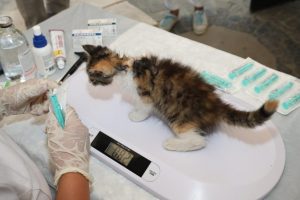
Illinois Pet Laws⁚ A Comprehensive Guide
This comprehensive guide provides an overview of Illinois pet laws, covering topics from rabies vaccination and licensing requirements to exotic animal ownership and service animal regulations. It aims to equip pet owners with essential information regarding their legal responsibilities and rights in the state.
Introduction
Illinois, like many other states, has a comprehensive set of laws governing pet ownership. These laws aim to ensure the well-being of both pets and their owners, while also addressing public safety concerns. Understanding these regulations is crucial for responsible pet ownership in the state. This guide provides a comprehensive overview of Illinois pet laws, encompassing various aspects such as rabies vaccination requirements, pet ownership limits, exotic animal regulations, service animal laws, and animal protection measures. It delves into the roles of relevant government agencies, such as the Illinois Department of Agriculture, in enforcing these laws and safeguarding the health and welfare of both pets and the community.
The information presented here is intended to provide a general understanding of Illinois pet laws. However, it is essential to note that legal interpretations and specific requirements can vary depending on the specific circumstances and local ordinances. Therefore, it is always advisable to consult with legal professionals or relevant government agencies for accurate and up-to-date information regarding specific situations.
Legal Restrictions on Pet Ownership in Illinois
Illinois law imposes specific restrictions on pet ownership, aimed at promoting responsible pet ownership and ensuring public safety. One key restriction pertains to the number of pets allowed per residence. The law limits the number of dogs and cats over six months of age to a maximum of four of each species per individual residence. This limitation applies to both single-family dwellings and individual dwelling units within multi-unit housing structures; This restriction is designed to prevent overcrowding and potential issues related to animal welfare and nuisance.
Another important restriction concerns the ownership of exotic or wild animals. Illinois law prohibits the ownership of exotic or crossbred or hybrid exotic animals in any place other than a properly maintained zoological park. This restriction is in place to protect public safety and prevent the potential spread of diseases or unintended harm from these animals. The law also specifies that no person shall own a dog or cat four months or more of age within the City unless said dog or cat has been registered in accordance with State Law and the city’s pet licensing ordinance.
These restrictions highlight the importance of adhering to Illinois pet ownership laws to ensure the well-being of both pets and the community. Understanding these restrictions is crucial for responsible pet ownership and can help prevent potential legal issues.
Rabies Vaccination and Licensing Requirements
Illinois law mandates rabies vaccination and licensing for dogs and cats to safeguard public health and prevent the spread of this potentially fatal disease. All dogs and cats six months or older are required to have a current rabies vaccination and a corresponding rabies tag. When purchasing animal tags, residents must present the rabies certificate containing the updated rabies tag number as proof of vaccination. The expiration date for every license is July 1 of each year, ensuring that vaccinations remain up-to-date.
The rabies vaccination requirement is crucial as it helps protect both pets and humans from this highly contagious viral disease. Rabies is transmitted through the saliva of infected animals, typically through bites or scratches. Prompt vaccination helps prevent the development of the disease and its potentially fatal consequences. The licensing requirement serves as a means of identifying and tracking animals, facilitating prompt action in case of a rabies exposure or other animal-related incidents.
By adhering to these regulations, pet owners contribute to the collective effort of safeguarding public health and preventing the spread of rabies, ensuring the well-being of both their pets and the community.
Pet Ownership Limits
Illinois law places limitations on the number of dogs and cats that can be owned, kept, or harbored within a single residence. This regulation aims to ensure responsible pet ownership and prevent overcrowding, which can negatively impact animal welfare and community safety. The law specifies a maximum of four dogs and four cats, aged six months or older, per individual residence. This limit applies to both single-family dwellings and individual dwelling units within multi-unit housing structures.
These limits are intended to strike a balance between responsible pet ownership and the right to enjoy companionship. It’s essential for pet owners to adhere to these limits to ensure the well-being of their animals and prevent potential issues that might arise from excessive pet populations within a single dwelling. By following these regulations, pet owners can contribute to a harmonious and safe living environment for both humans and animals within their communities.
It’s worth noting that the law does not specifically define the types of dogs or cats allowed, but rather focuses on the total number of animals. Therefore, the limit applies to all breeds and mixes of dogs and cats, regardless of size or temperament.
Exotic and Wild Animals
While dogs and cats are the most common household pets, Illinois law imposes strict regulations on the ownership of exotic and wild animals. These regulations are designed to protect both public safety and the welfare of the animals themselves. Illinois law prohibits the ownership of exotic or crossbred or hybrid exotic animals in any place other than a properly maintained zoological park. This includes animals that are not native to Illinois and may pose a risk to the environment or public health. Examples of exotic animals that are typically prohibited include but are not limited to⁚ snakes, lizards, turtles, and certain types of birds.
The law also places restrictions on the ownership of certain wild animals, which are defined as those born in the wild or bred in captivity. The Wildlife Code of Illinois (Section 2.2) protects nearly all wildlife in the state, and it is illegal to hold them in captivity without authorization from the Illinois Department of Natural Resources. This includes animals like deer, rabbits, squirrels, and even some types of birds. The law aims to prevent the exploitation of wildlife and ensure their continued survival in their natural habitats.
To own an exotic or wild animal in Illinois, individuals must obtain the necessary permits and licenses. These permits are typically granted to zoos, wildlife sanctuaries, or other licensed facilities that meet specific requirements for animal care and safety. The Illinois Department of Agriculture is also involved in regulating the ownership of certain animals, and it is important to consult with them for specific guidance on the regulations that apply to your situation.
The Illinois Pet Trust Act
The Illinois Pet Trust Act, enacted in 2005, provides a legal framework for pet owners to ensure their beloved companions are cared for after their own passing. This act allows individuals to establish a pet trust, a legal mechanism that designates a trustee responsible for the care and well-being of the pet after the owner’s death. The trust document outlines the specific provisions for the pet’s care, including housing, food, veterinary care, and any other essential needs.
Prior to the enactment of the Pet Trust Act, Illinois law treated pets as personal property, leaving their fate uncertain after an owner’s death. The act fundamentally changed the legal status of pets, recognizing their unique role in the lives of their owners and the importance of ensuring their continued well-being. The Illinois Pet Trust Act has been praised for providing pet owners with peace of mind, knowing that their furry companions will be cared for according to their wishes, even after they are gone.
The act allows for a variety of arrangements within a pet trust, including the designation of a specific individual as the trustee, the establishment of a trust fund to cover the pet’s expenses, or even the creation of a charitable trust where the pet’s care is overseen by a non-profit organization. The flexibility of the act allows pet owners to tailor the trust to their individual circumstances and ensure that their pet’s needs are met in the most appropriate way. This act has become a valuable tool for pet owners who want to guarantee their beloved companions a loving and secure future.
Service Animal Laws in Illinois
Illinois law recognizes the vital role that service animals play in the lives of individuals with disabilities. The Service Animal Access Act, passed in 2008, ensures that people with disabilities have equal access to public accommodations accompanied by their service animals. This act defines a service animal as a dog that is individually trained to do work or perform tasks for a person with a disability. The act prohibits discrimination against individuals with disabilities based on the presence of their service animals.
Under Illinois law, service animals are not considered pets and are not subject to the same restrictions or regulations as other animals. Businesses and public entities are required to accommodate service animals in all areas where the public is normally allowed, including restaurants, stores, hotels, and public transportation. Individuals with disabilities have the right to bring their service animals into these places, even if the establishment has a “no pets” policy.
The Service Animal Access Act also includes provisions related to the identification and documentation of service animals. While individuals with disabilities are not required to provide documentation or proof of their disability, they may be asked to verify that the animal is a service animal by demonstrating its training or identifying its specific task. The act emphasizes that individuals with disabilities have the right to access public spaces with their service animals without unnecessary scrutiny or questioning.
Animal Protection Laws in Illinois
Illinois has a comprehensive set of laws designed to protect animals from cruelty and neglect. The Illinois Animal Cruelty Act, codified in the Illinois Compiled Statutes, outlines various offenses related to animal abuse, including acts of torture, mutilation, and deprivation of necessary care. This act also addresses the issue of animal fighting, which is considered a serious crime in Illinois.

The act establishes penalties for individuals who violate its provisions, ranging from fines to imprisonment, depending on the severity of the offense. The Illinois Department of Agriculture is responsible for enforcing these laws and investigating reports of animal cruelty. The department works with local law enforcement agencies and animal welfare organizations to ensure that animals are safe and treated humanely.
Beyond the Animal Cruelty Act, Illinois has additional laws protecting specific animals. For example, there are laws prohibiting the abandonment of animals, regulating the sale of animals, and ensuring that animals receive proper veterinary care. These laws aim to create a legal framework that promotes the well-being of animals and holds individuals accountable for their actions.
The Role of the Illinois Department of Agriculture
The Illinois Department of Agriculture (IDOA) plays a pivotal role in regulating and overseeing various aspects of animal welfare and agriculture in the state. One of its key responsibilities is to enforce animal protection laws, ensuring that animals are treated humanely and protected from cruelty and neglect. The IDOA investigates reports of animal cruelty, working closely with local law enforcement agencies to address these issues effectively. The department also oversees the licensing and registration of animal shelters and animal control facilities, ensuring they meet specific standards of care and humane treatment.
Beyond animal protection, the IDOA is responsible for regulating the production and sale of agricultural products, including pet food. This involves establishing standards for the manufacturing and labeling of pet food, ensuring that it meets safety and quality requirements. The IDOA also plays a crucial role in promoting the state’s agricultural industry, supporting farmers and ranchers, and ensuring the sustainability of agricultural practices. This multifaceted role highlights the department’s commitment to safeguarding both animal welfare and agricultural interests in Illinois.
The IDOA works closely with other government agencies, animal welfare organizations, and stakeholders to achieve its goals. The department’s website provides a wealth of information about its services and programs, including resources for pet owners, farmers, and those interested in animal welfare.
Pet Food Regulations
In Illinois, the safety and quality of pet food are carefully regulated by the Illinois Department of Agriculture (IDOA). The IDOA’s Bureau of Agricultural Products Inspection plays a vital role in ensuring that pet food sold in the state meets stringent standards. These regulations cover various aspects of pet food production, including manufacturing practices, labeling requirements, and ingredient specifications. The goal is to protect both the health and well-being of pets and to prevent the sale of unsafe or mislabeled pet food products.
The IDOA’s regulations require pet food manufacturers to adhere to Current Good Manufacturing Practices (CGMPs). These practices ensure that pet food is produced in a clean and sanitary environment, minimizing the risk of contamination. Additionally, pet food labels must be accurate and informative, clearly listing the ingredients, nutritional content, and feeding guidelines. The IDOA also conducts inspections of pet food manufacturing facilities to verify compliance with these regulations. This rigorous oversight helps to ensure that pet owners can have confidence in the safety and quality of the pet food they are purchasing.
Pet owners are encouraged to be aware of the IDOA’s pet food regulations and to choose reputable brands that adhere to these standards. By making informed choices about pet food, owners can help to ensure their furry companions are receiving the nutrition they need for a healthy and happy life.
Navigating Illinois’s pet laws can be a complex task, but understanding these regulations is crucial for responsible pet ownership. From rabies vaccinations and licensing requirements to restrictions on exotic animal ownership and the Illinois Pet Trust Act, the state has implemented a comprehensive framework to ensure the well-being of both pets and their owners. The Illinois Department of Agriculture plays a vital role in enforcing these laws, ensuring that pet food is safe and that animals receive adequate care.
It’s important to remember that animal law is a constantly evolving area. Staying informed about the latest updates and changes to these regulations is essential. Pet owners should consult with local authorities or animal welfare organizations for the most up-to-date information and guidance. By understanding and complying with Illinois’s pet laws, owners can contribute to a safe and responsible environment for both their beloved companions and the community as a whole.




